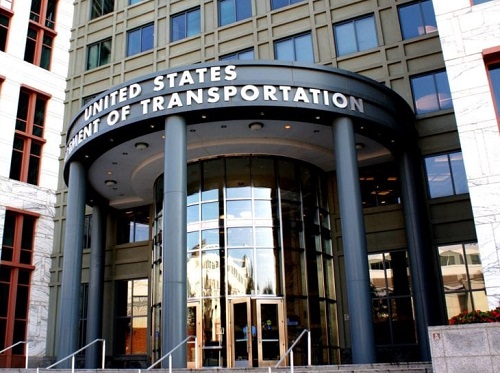The U.S. Department of Transportation recently awarded $185 million in grants to 45 projects through its new “Reconnecting Communities” pilot program – what the agency described as a “first-of-its-kind” initiative to reconnect communities “cut off from opportunity and burdened by past transportation infrastructure decisions.”
[Above photo by USDOT]
Established by $1.2 trillion Infrastructure Investment and Jobs Act or IIJA, which was enacted in November 2021, the “Reconnecting Communities” program provides technical assistance and funding for communities’ planning and construction projects that aim to connect neighborhoods back together by removing, retrofitting, or mitigating transportation barriers such as highways and railroad tracks.
USDOT noted that this first round of grants – comprised of 39 planning grants and six capital construction grants – will fund construction and planning for transformative community-led solutions, including capping interstates with parks, filling in sunken highways to reclaim the land for housing, creating tree-lined “Complete Streets,” and creating new crossings through public transportation, bridges, tunnels and trails.
“Transportation should connect, not divide, people and communities,” noted Pete Buttigieg, USDOT secretary, in a statement. “We are proud to announce the first grantees of our Reconnecting Communities program, which will unite neighborhoods, ensure the future is better than the past, and provide Americans with better access to jobs, health care, groceries and other essentials.”
For example, the California Department of Transportation and the City of Oakland received one of those grants – worth $680,000 – to explore ways to reconnect communities divided by transportation infrastructure along I-980; one of five California projects receiving “Reconnecting Communities” program grants.
The I-980 corridor, completed in 1985, ended up dividing communities in West Oakland from downtown Oakland and today acts as a barrier to travel and economic opportunities between these communities. The new grant allows Caltrans and the City of Oakland to study alternatives for reconnecting communities along the corridor with an expanded focus on community integration and environmental justice.
“Transportation should always improve access to opportunity and be a uniter not a divider,” said Toks Omishakin, secretary of the California State Transportation Agency, in a statement. “These awards, coupled with the forthcoming $150 million state investment for a parallel ‘Highways to Boulevards pilot program,’ will allow California neighborhoods divided by transportation infrastructure – particularly historically disadvantaged communities – to take steps to remove literal barriers to opportunity and begin making up for past harms.”


